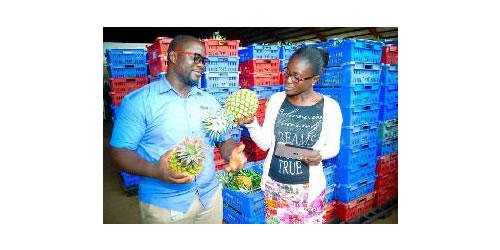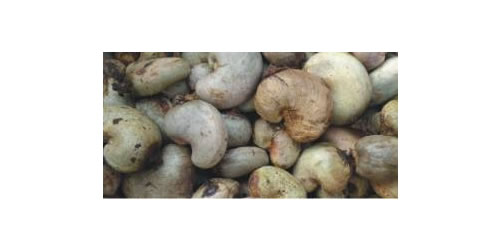More research required to determine revival of fishing industry – Sodji

President of the Aquaculture Association is raising doubts over a ‘historical data’ from the Ghana Statistical Services (GSS) showing that the fishing sector is showing signs of revival.
Madam Jennifer Sodji in raising doubts over the research findings pointing to the growth in the sector by 2.7% said ‘more research’ into the claims was required to ascertain the facts.
“Some research is required to determine if this is true because most of the time you are fed findings of supposed researches which in the end have turned out to be inaccurate,” madam Sodji cautioned.
Historical data obtained from the Ghana Statistical Services (GSS) seeks to portray that for the first time in nine months, the fishing sector – which is beset with many challenges that have seen its growth contract – seems to be getting out of the woods, recording 2.7 percent growth in the second quarter of 2018.
Data from the Ghana Statistical Services (GSS) show that the fishing sector has largely experienced negative growth since 2017.
In the first quarter of 2017, growth contracted by -9.9 percent and further worsened in the next quarter to -33.2 percent. But the trend reversed sharply in the third quarter, as growth came in at 38 percent; the highest to be recorded in any sector of the economy that year.
That growth however could not be sustained, as it slid back sharply to -4.3 in the last quarter of 2017.
The sector started 2018 with another contracted growth of -9.2 percent before a positive 2.7 percent growth rate in the second quarter.
The Fisheries Commission attributes the positive trend to effective monitoring and surveillance in the sector, especially on industrial trawlers, and an increase in the export of tuna.
“Placing observers on board to monitor industrial trawlers has really improved performance of the sector. And from our statistics, we see that there is growth in the tuna sector as volumes of exports are growing,” an official said.
The depleting fish stock and saiko
A major challenge that has blighted prospects in this sector is the depleting fish stock, especially the small pelagic fish otherwise known as the ‘people’s fish’ – which include anchovies, mackerel and sardines.
According to the Ministries of Fisheries and Aquaculture Development, small pelagic fish make up 80 percent of total marine fish caught and landed in Ghana; and directly employs 150,000 canoe-fishers, 30,000 fish processors, and an estimated 2.7 million people involved in trading, transporting and selling this fish across the nation.
The ministry further reports that total landings of pelagic fish in Ghana have decreased by 86 percent from 138,955mt in 1996 to 19,608mt in 2016.
This small pelagic fish is illegally transferred at sea to specially-adapted canoes, and sold back to fishing communities for profit.
This practice, otherwise known as saiko, accounted for an estimated 100,000 tonnes of illegal and unreported catches in 2017—with an estimated landed value of US$34-64million lost annually to the state, an investigation by the Environmental Justice Foundation (EJF) has revealed.
The EJF investigation further revealed that even though the country’s laws forbid foreign ownership or control of vessels flying the Ghana flag, about 90 percent of its industrial fishing fleet is owned by the Chinese.
Loss of the small pelagic fish threatens economic growth and presents an internal security problem, with the livelihoods of up to 500,000 people directly involved.
To address this problem, the ministry announced that the month of August was going to be a closed-season for fishing – to make room for the fish to spawn (breed), as August is usually their breeding period.
But the directive came under heavy criticism from industry people, and government was forced to postpone its implementation to August 2019.
Ban on tilapia imports
In July this year, the Ministry of Fisheries and Aquaculture Development (MoFAD) placed a ban on the importation of all ornamental fishes and tilapia species (live and dead), including gametes (eggs) and milt, into the country from July 1 to December 31, 2018.
A statement issued by MoFAD to announce the ban said the Tilapia Lake virus was a newly emerging virus associated with significant mortalities in farmed tilapia.
“The attention of the Ministry of Fisheries and Aquaculture Development (MoFAD) has been drawn to the fact that, cases have been reported across Africa, Asia and South America that the virus represents a huge risk to the global tilapia industry.
“This means all countries should be vigilant and act quickly to investigate cases of mortalities in farms,” the statement said.
That ban is still in place.
Source: ritefmonline.org




